Rachel Weston: Hello. My name's Cantor Rachel Weston. It's a pleasure to be here and I'm so grateful for the opportunity to say hi and to be coming to visit the community in a few weeks time.
And yeah, I dunno if I'm expected to say a particular thing or if there's any sort of formality to this, but it's just great to be here and I'm so excited to, to work with you and to learn together and sing together and pray together and be in community together. And yeah, that's it.
Suzanne Pedro: Hi Rachel. My name's Suzanne. I was just wondering, have you ever visited Leeds before?
Rachel Weston: I have visited Leeds before. Yeah, I actually visited I guess 20 something years ago when I was looking at university. So I remember that quite clearly. And my brother actually went to university in Leeds.
So I worked for a year mostly online for Manchester reform.
Jackson's Row. So I feel like I have, it's not the same city, but a bit of a sense of the Northern Jewish scene. And I've got friends in Leeds.
I'm just really excited because everyone I've told that I'm moving there has nothing but superlatives to say about it as a city. And it's not a city that I know very well, but one of the most exciting things is that it's so near the peaks and so near the Dales and that, you can be in nature in a really short amount of time.
So yes, I have spent a small amount of time in Leeds, but it's not a city that I'm familiar with.
Hannah Bloom: Rachel, I'm not sure what we're going to be calling you. We can't say rabbi, can we?
Rachel Weston: No, cuz I'm not a rabbi. You can call me Rachel or Cantor Rachel.
I'm not super into formality, so yeah, first name is fine for me.
David Israel: Could you just explain to those of us who are not sure what the difference is between the cantor and the rabbi?
Rachel Weston: Okay. So the training is very similar. First of all, they're are similar length. Most of the first year is exactly the same. We just have more classes in musicianship.
So I would say the main difference is that Cantorial students, do a very deep dive into Jewish music and music of the synagogue and rabbis do a lot more of a deep dive into jewish text and cantors spend a a lot more time on music and liturgy and the way that the music and the liturgy interact. That being said we do study tanach, we do study mishna. We do study Talmud. Just not as much. We're completely qualified to lead lifecycle events in the same way that a Rabbi does.
I'm very experienced with pastoral care and I have a background as you might have read it in social care.
I think cantors are a whole package I'm bringing. scholarship and a deep love of music, both performing, but more importantly, for the cantor facilitating prayer and empowering others to express their love of Judaism and their love of community, not just through music, through learning and prayer and food and all these other things.
But I bring a specialism in music. I've been a professional musician for a long time I don't come to the synagogue to perform. I come to the synagogue to, facilitate community and other people's prayer. So bullet point answer. Cantors have more training in music and liturgy. Rabbis have more training in text.
It's just the special focus of the five years is a little bit divergent, but mostly it's, it's very similar training.
Tony Bryant: Okay, Rachel, it's Tony Bryant here. I must tell you that we had a meeting of northern chairs from various synagogues, Manchester, Sheffield, and so on, on Sunday. And one or two of them were they were probably as excited as anybody in Sinai about your appointment, and I'm really looking forward to becoming, to having another chance to see you.
So there's a huge amount of excitement across the whole of the north. And so there's a, no pressure, Rachel, but there's a huge excitement about you coming and we're really looking forward to seeing you in June.
Rachel Weston: I have to say, I had such an amazing experience working at Jackson's Row, that everyone was so wonderful and so receptive. And similar vibe that I get from Sinai, just really passionate about learning and being in community with each other and, the complications and difficulties that, that go with that as well.
That's so sweet to hear that Everyone's excited and I'm also very excited.
Lovely. All right. Thanks so much for having me, everyone. And yeah, look forward to meeting you please, God soon. Bye

